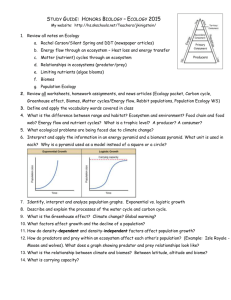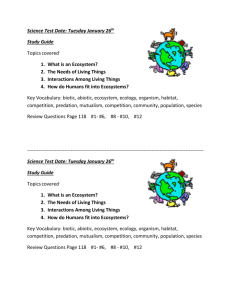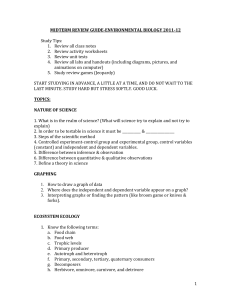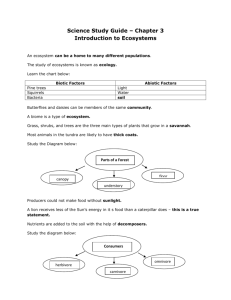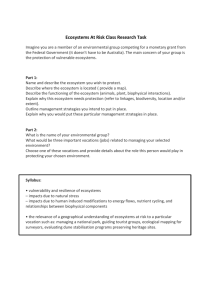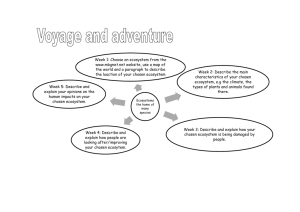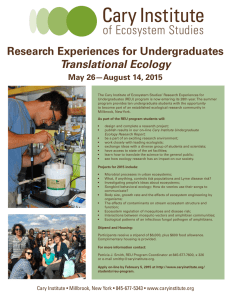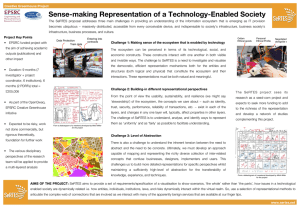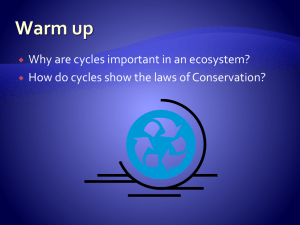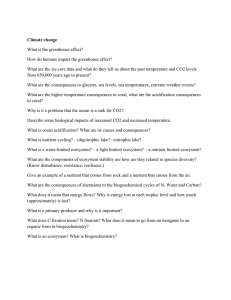Chapter 3 Study Guide
advertisement
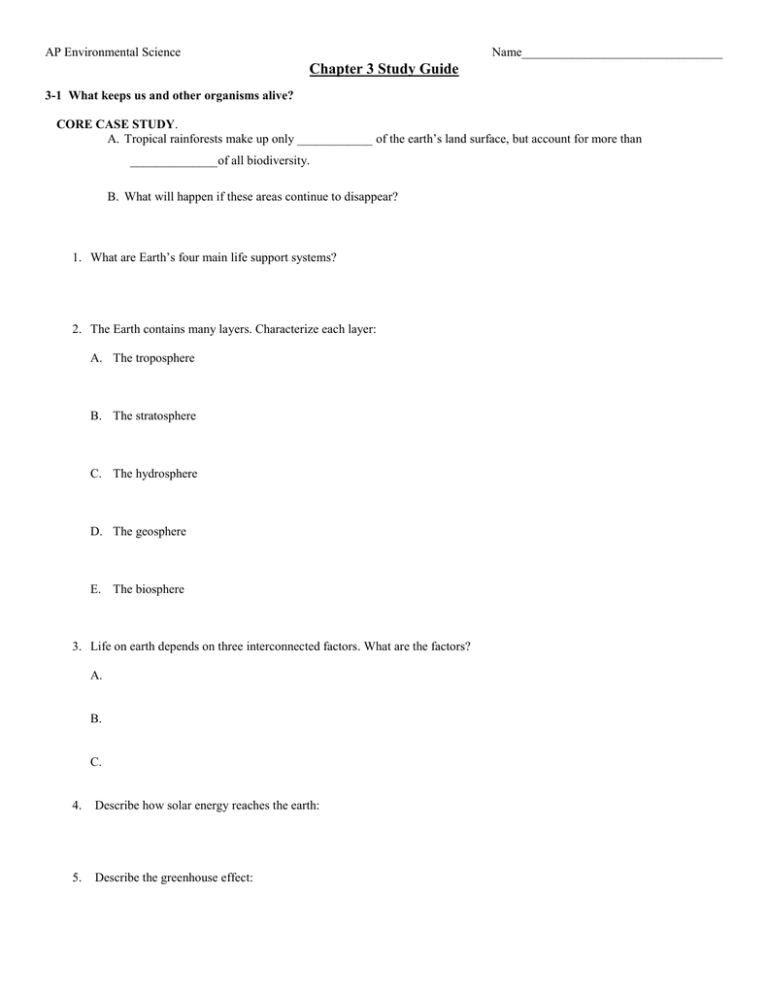
AP Environmental Science Name________________________________ Chapter 3 Study Guide 3-1 What keeps us and other organisms alive? CORE CASE STUDY. A. Tropical rainforests make up only ____________ of the earth’s land surface, but account for more than ______________of all biodiversity. B. What will happen if these areas continue to disappear? 1. What are Earth’s four main life support systems? 2. The Earth contains many layers. Characterize each layer: A. The troposphere B. The stratosphere C. The hydrosphere D. The geosphere E. The biosphere 3. Life on earth depends on three interconnected factors. What are the factors? A. B. C. 4. Describe how solar energy reaches the earth: 5. Describe the greenhouse effect: AP Environmental Science 6. How do humans impact the greenhouse effect? 3-2 What are the major components of an ecosystem? 7. What is ecology? 8. Ecology is studied at five levels. What are the levels? 9. List several abiotic components of an ecosystem 10. Define trophic level 11. What is an autotroph? 12. Describe photosynthesis: 13. Describe chemosynthesis: 14. Describe aerobic respiration: 15. Describe anaerobic respiration: 16. Define the following A. Consumer B. Primary consumer C. Herbivores D. Carnivores E. Secondary consumer F. Tertiary consumer Name________________________________ AP Environmental Science Name________________________________ G. Omnivore H. Decomposer I. Detritivores 17. What services do microbes provide? 3-3 What happens to energy in an ecosystem? 18. What is the purpose of illustrating food chains and food webs? 19. What is biomass? 20. What happens to energy as it moves up a food chain or food web? 21. What is an energy pyramid? How does it help visualize energy flow? 22. Distinguish differences between primary productivity (GPP) and net primary productivity (NPP): 3-4 What happens to matter in an ecosystem? 23. What do nutrient/biogeochemical cycles do for the environment? 24. Describe each of the following cycles. Include information about how humans have affected these cycles: A. Water/hydrologic cycle B. Carbon cycle AP Environmental Science C. Nitrogen cycle D. Phosphorus cycle E. Sulfur cycle 3-5 How do scientists study ecosystems? 25. How do ecologists study ecosystems and their organisms? 26. What new technologies do ecologists use? 27. Explain how laboratory research can help aid in ecological studies. 28. What is systems analysis? When is it very useful? Name________________________________

